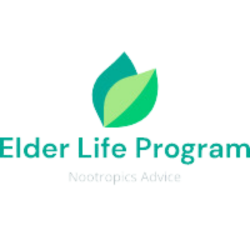Delirium, a common acute confusional state in hospitalized elders, has been linked to the ongoing COVID-19 pandemic. Early reports have shown an increase in delirium attributable to COVID-19 infection and, in some cases, delirium has presented as an initial symptom of the virus. This article will provide insights into delirium and its association with COVID-19, focusing on prevention, management, and the potential role of nootropics in the care of older adults.
Delirium and COVID-19: The Connection
Atypical presentations of COVID-19 in older adults include altered mental status and a lack of typical symptoms such as shortness of breath, cough, or fever. The World Health Organization has recognized "altered consciousness/confusion" as a presenting symptom of COVID-19. Delirium, as a result, has become a vital concern for healthcare providers treating older adults during the pandemic.
Screening and Management of Delirium
Organizations such as the Geriatric Emergency Department Collaborative and Regional Geriatric Program Toronto have provided guidelines for identifying, preventing, and treating delirium in the context of COVID-19. Non-pharmacologic methods, including reducing social isolation and facilitating advance care planning, have proven effective in preventing and managing delirium. Pharmacologic management, however, should be reserved for extreme cases of agitation.
The Potential Role of Nootropics
Nootropics, also known as cognitive enhancers or "smart drugs," may play a role in the prevention and management of delirium in older adults. These substances are known for their potential to improve cognitive function, particularly executive functions, memory, creativity, or motivation in healthy individuals.
While nootropics have not been specifically linked to delirium prevention or management in the context of COVID-19, they have been explored as a potential adjunctive therapy in cognitive decline and dementia, conditions that may share similar underlying mechanisms with delirium. Some nootropics, such as huperzine A, have been studied for their potential to improve cognitive function in Alzheimer's disease, showing promising results in preliminary research.
However, it is essential to approach nootropic use with caution and consult a healthcare provider before incorporating them into a care plan, as their safety and efficacy have not been extensively studied in older adults, particularly those with COVID-19.
Conclusion
Delirium is a significant concern in the care of older adults, particularly during the COVID-19 pandemic. Healthcare providers must prioritize screening, prevention, and management of delirium in these vulnerable patients. Nootropics may offer a potential avenue for intervention, but their safety and efficacy in the context of COVID-19 and delirium remain uncertain. Further research is needed to explore their role in this population.
